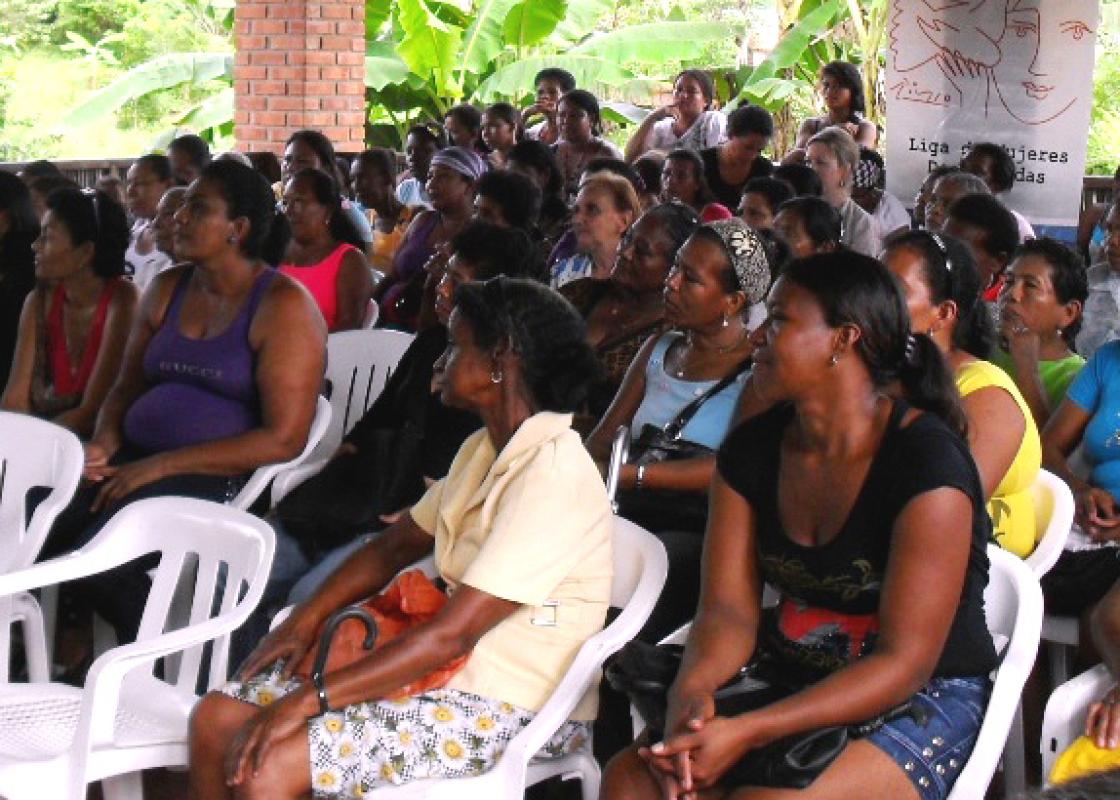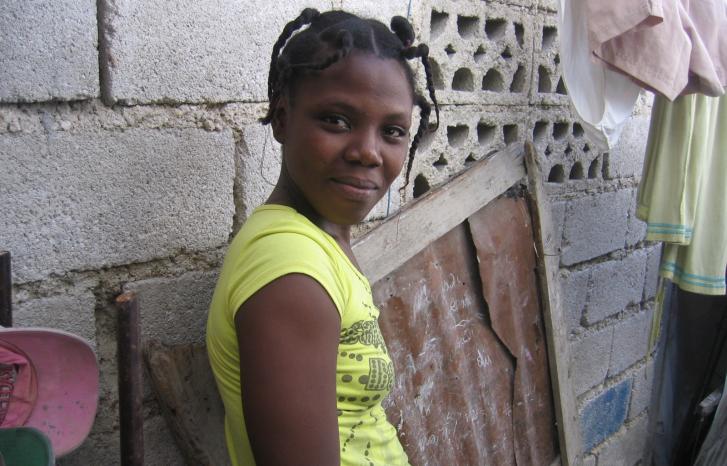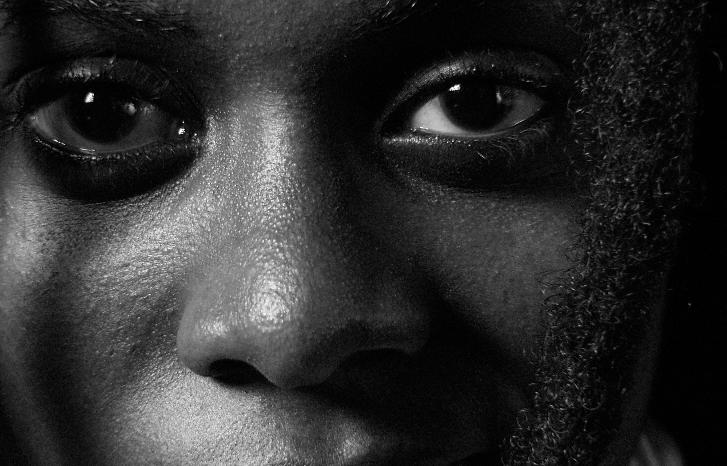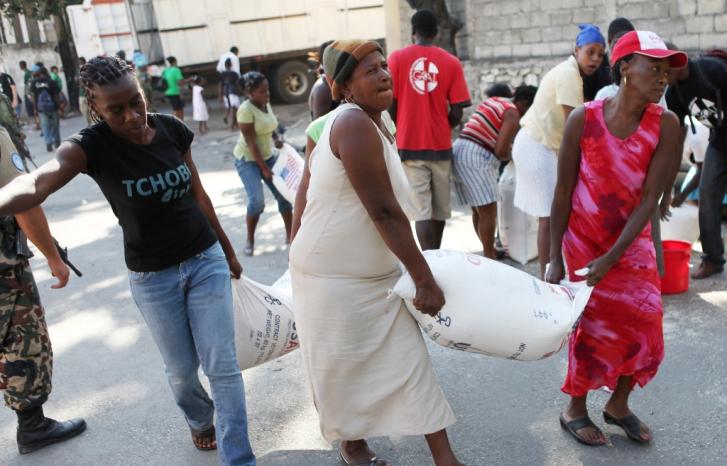“Internally displaced persons in Colombia live very difficult lives. They are discriminated against in the labour and housing markets, and they struggle to secure their rights to basic services such as education and primary health care. They are also discriminated against due to their ‘suspect political identity’ – they are suspected of being guerrilla collaborators, acting as informants for the paramilitary or taking part in the drug trade. In addition, the women are vulnerable to many gender-specific problems, such as sexualized violence and poor maternal health,” explains Kristin B. Sandvik, a senior researcher at the Peace Research Institute Oslo (PRIO).
Together with Julieta Lemaitre, the director of Centro de Investigaciones Sociojurídicas (CIJUS) at Universidad de los Andes in Colombia, Sandvik is heading up a project that explores the situation of internally displaced women in Colombia. They are studying how important it is for these women to organize themselves in order to secure their human rights and other legally established rights. The project, which is a collaborative effort between PRIO and CIJUS, has received funding from the Norway – A Global Partner programme (NORGLOBAL), the Research Council’s initiative to strengthen Norwegian research on and with countries in the South.
Rights on paper
Due to long-term internal conflicts between government authorities, guerrilla groups and other paramilitary groups which have been further intensified by the war on drugs, Colombia now has the world’s largest population of internal refugees. Today about 5.2 million people in the country, depending on who does the counting, have status as internally displaced persons. Of these, 52 percent are women. Most of them have fled from rural areas to small and medium-sized cities within the same region or to large cities such as Medellin, Cali and Bogotá.
In 1997, Colombia enacted a landmark law requiring the authorities to prevent and address the problem of internally displaced persons and to ensure that these individuals can return to their home villages and achieve socioeconomic stability. In practice, however, very little changed until 2004 when Colombia’s Corte Constitucional, the Constitutional court, ruled that the situation for internally displaced persons was unconstitutional. The court has been proactive, designing measures to improve the situation and requiring the authorities to implement them. Many of these measures are targeted especially at women. As one example, the court is addressing the problem of sexual violence and exploitation.
“Today Colombia has some of the world’s best legislation for the internally displaced as well as a strong, well-functioning state. But the country also struggles with internal conflicts, especially related to the drug trade, and it is an extremely violent society. As a result, the situation for these women in practice is very difficult. Only a few of them are organized at any level, and they know very little about what their constitutional rights are,” explains Lemaitre.
In their research project Sandvik and Lemaitre are investigating whether internally displaced women who have organized themselves are better able to secure their rights. Their hypothesis is that the best way for a vulnerable group to demand actual implementation of their legal rights, as well as of national and regional policies, is through civic and political organizations. The organizations can hold the local politicians accountable for not addressing humanitarian emergencies and for not delivering the services and subsidies ordered by law. According to the researchers, strong voices that demand change at the municipal level are needed.
Success with an after taste
“We have chosen to study an association for internally displaced women called Liga de Mujeres Desplazadas, which is a highly successful grassroots organization with over 300 members in and around the city of Cartagena. Among other things, they have a successful housing scheme which has provided about 100 families with their own homes. All the children attend school, and 98 percent of the households have received subsidized health insurance. The organization has garnered both national and international recognition for their work,” says Lemaitre.
“By the same token, there is a security risk for the women who organize themselves. Liga de Mujeres Desplazadas has attracted the attention of both local and national authorities. The women demand to be treated with respect and to receive the services they have a legal right to, and they work to counteract discrimination. As a result, the organization faces a lot of opposition,” she continues.
“Before, the general attitude in the region towards human rights activists was very negative. This has improved, but the paramilitary regards the activists as an obstacle to their profits and power. When internally displaced persons demand that they are allocated the share of the local budget they are entitled to, the head of the local paramilitary has less opportunity to direct the funds towards those projects he and his supporters want,” explains Sandvik.
In addition, internal refugees are often suspected of taking part in the drug trade and cooperating with guerrilla and paramilitary groups. Being a woman in a macho culture does not help either. The members of the association often receive threats, one of their leaders was murdered, and they are sometimes attacked by youth gangs.
“It has now gotten so bad that they have stopped updating their website so that people who wish them harm cannot get hold of information there,” says Lemaitre.
The researchers say that many women often encounter problems on the home front when they organize themselves. Some of their husbands have a traditional view of women and do not like it that their wives are politically active. Child care and transportation costs also present a problem when they need to attend meetings.
“We want to find out whether it has been worthwhile for the women in the association to organize. Our hypothesis is that since they have been successful in securing the members’ rights – such as the right to education, health and housing – this outweighs any disadvantages,” says Sandvik.
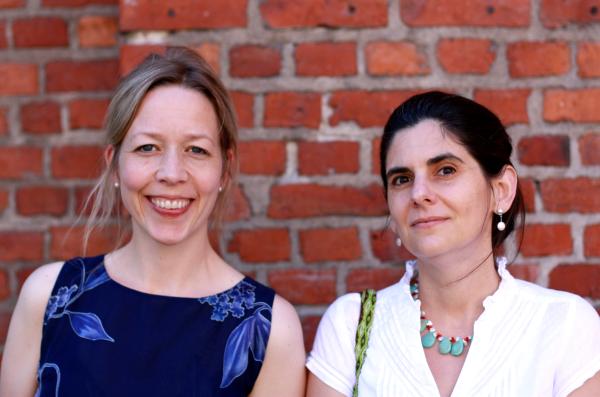
In 2010, they administered a survey of living conditions to the members of the association. By comparing the results of the survey with national data, they wanted to find out whether the women were in fact better off than their non-organized sisters.
Precarious food situation
When they analyzed the results of the survey, they got a surprise: 72 percent responded “yes” to the question of whether they themselves or other family members had had too little to eat in the past week. They also learned that 60 percent of their children had been diagnosed as too small for their age and so were given a nutrition plan.
“But nutrition plans are not much help if you cannot manage to get hold of the food your children need,” Lemaitre comments.
“In other words, even though the association has achieved a lot, its members find it hard to get enough to eat. Since we know that they will let their children eat until they are full before they eat themselves, our survey shows that a lack of food is a huge problem. These findings came as a surprise to the association. It appeared as if most of the members thought they were the only ones who had this problem,” says Sandvik.
From research to activism
Now the snowball has begun to roll. The research project will last until 2013 and the researchers are still in the process of collecting data, but Liga de Mujeres Desplazadas has already used the results of the survey to help to improve the food situation.
“Apart from asking for money for food from all the relevant humanitarian programmes and institutions, they have also filed a lawsuit in which they accuse the local authorities of using less of the budget on internally displaced persons than they are required to. Now the association can use the survey as evidence that it is in fact essential that local politicians set aside money and launch a food programme, or provide subsidies,” Lemaitre explains.
The association lost the first rounds in the courts, but now the country’s Constitutional court has decided to hear the case, which will take place this summer.
Moreover, Liga de Mujeres Desplazadas attended a large meeting about its members’ security that was hosted by government representatives on 1 July. Because of all the death threats, the government has now been required by the Inter-American Commission on Human Rights to protect the leaders of the association.
“At the moment the leaders have been assigned bodyguards and that feels rather strange for poor people. The women are more concerned that the security situation and food situation are interconnected, and they hope the government will implement measures to get them more food. After all, how can you earn a living when being an activist means that nobody will hire you?” asks Lemaitre.
“As a researcher I have never experienced that findings have been put to such practical use as quickly as in this project. Although we have not written any reports yet, this survey has already managed to have an impact on the association’s activities and on political priorities. It will be very exciting to follow this process in the future,” says Sandvik.
Translated by Connie Stultz.
Kristin B. Sandvik is a senior researcher at the Peace Research Institute Oslo (PRIO).
Julieta Lemaitre is the director of Centro de Investigaciones Sociojurídicas (CIJUS) at Universidad de los Andes in Colombia.
They are heading up the project entitled The Significance of Political Organization and International Law for Displaced Women in Colombia: A Socio-legal Study of Liga De Mujeres, which has received funding from the Research Council’s Norway – A Global Partner programme (NORGLOBAL).
